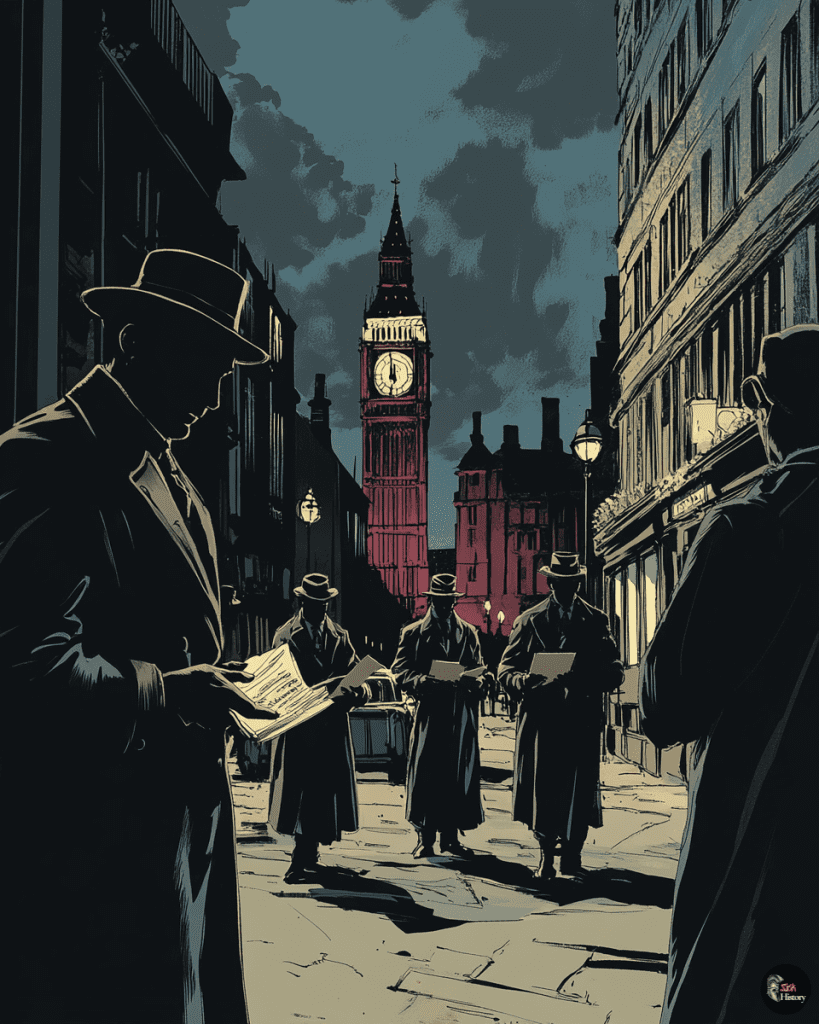The Cambridge Five, a notorious spy ring that operated during the Cold War, deeply impacted British intelligence and international relations.
This group of Soviet agents, recruited from Cambridge University in the 1930s, infiltrated key positions within the British government and intelligence services.
The ring’s most prominent members included Kim Philby, Guy Burgess, Donald Maclean, Anthony Blunt, and John Cairncross, who passed vital information to the Soviet Union for decades.
Their activities compromised national security and strained relations between the UK and its allies, particularly the United States.
The Cambridge Five’s story is a tale of ideological commitment, betrayal, and the complex nature of espionage during a period of intense global tension.
Their actions continue to fascinate historians and the public, shedding light on intelligence services’ vulnerabilities and the far-reaching consequences of espionage.
The Cambridge Spy Ring
The Cambridge Spy Ring was a group of Soviet spies who infiltrated British intelligence during the Cold War.
These individuals, recruited from Cambridge University, passed critical information to the Soviet Union for decades.
Formation and Key Figures
The Cambridge Five consisted of Kim Philby, Guy Burgess, Donald Maclean, Anthony Blunt, and John Cairncross. They were recruited in the 1930s while studying at Cambridge University.
Kim Philby, the ring’s most infamous member, rose to a high position in MI6.
Guy Burgess and Donald Maclean worked in the Foreign Office. Anthony Blunt became an art historian and surveyor of the Queen’s pictures. John Cairncross, sometimes called the “Fifth Man,” worked in various government departments.
These men came from privileged backgrounds and held influential positions, allowing them access to sensitive information.
Recruitment and Ideology
The spies were drawn to communist ideology, which they viewed as a solution to the social and economic problems of the 1930s.
Many were disillusioned with British society and capitalism. The Soviet Union’s promises of equality and workers’ rights appealed to their idealistic nature.
Their handlers, skilled in manipulation, exploited these beliefs.
The recruits were convinced they were fighting for a noble cause, not merely betraying their country.
Operations and Espionage
The Cambridge Spy Ring operated for over two decades, passing valuable intelligence to the Soviet Union.
Their activities spanned World War II and the early Cold War period.
Philby, as a high-ranking MI6 officer, provided information on British and American intelligence operations.
Maclean and Burgess passed diplomatic secrets from the Foreign Office.
The ring’s espionage was extensive and damaging. They revealed:
- Allied military plans
- Names of Western agents
- Details of atomic weapons programs
Their activities compromised numerous operations and endangered many lives. The full extent of the damage remains unclear to this day.
Impact on Global Intelligence
The Cambridge Five spy ring significantly altered the landscape of international espionage and intelligence operations.
Their activities reshaped relationships between world powers and significantly changed intelligence practices.
Cold War Espionage
The Cambridge Five played a crucial role in shaping Cold War espionage.
Kim Philby, a high-ranking member of British intelligence, passed critical information to the Soviet Union for decades. This compromised numerous Western operations and endangered the lives of many agents.
The group’s activities heightened tensions between East and West.
Their betrayal eroded trust between allies, particularly straining the relationship between British and American intelligence agencies.
The Cambridge spies’ success demonstrated the vulnerability of Western institutions to ideological infiltration.
This realization led to increased scrutiny of government employees and tighter security protocols in many countries.
British Intelligence Reforms
The exposure of the Cambridge Five prompted significant reforms in British intelligence services.
MI5 and MI6 implemented more rigorous vetting procedures for new recruits and existing personnel.
Background checks became more thorough, and psychological evaluations were introduced.
The agencies also improved their internal security measures to prevent future breaches.
These reforms extended beyond intelligence services. The British government implemented stricter security protocols across various departments, particularly those handling sensitive information.
Soviet Union Intelligence Triumphs
For the Soviet Union, the Cambridge Five represented a major intelligence coup. The ring provided Moscow with invaluable insights into Western policies, strategies, and military capabilities.
The information supplied by the spies helped the Soviets gain strategic advantages during the Cold War. It allowed them to anticipate and counter Western moves in various geopolitical arenas.
The success of the Cambridge Five boosted Soviet confidence in their intelligence operations. It encouraged further attempts to infiltrate Western institutions and recruit ideologically sympathetic agents.

